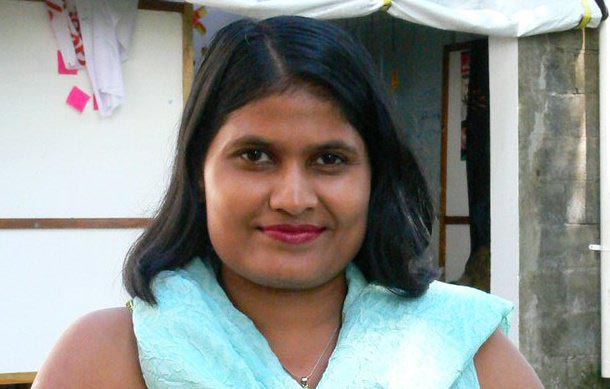
By Rosie Doviverata
SUVA (Fiji Sun / Pacific Media Watch): A Fijian media freedom and human rights advocate says the country needs more political participation leading up to next year’s election.
Mosmi Bhim is a lecturer at the Department of Ethics and Governance at the Fiji National University and also a former employee of the NGO Citizens’ Constitutional Forum.
She is concerned not enough new actors avail themselves of the opportunity to help steer Fiji back to democracy.
“Indeed, this is worrying for Fiji, because it indicates that the cream of Fiji’s society is largely refusing to take an active part in the political activities of the country,” Bhim said in an interview with the Fiji Sun.
Bhim said she hoped to see the emergence of a new wave of young aspiring politicians in Fiji.
“By new political actors, I mean the younger generation and people who have not been in the public eye for the past 30 years,” she said.
“These would be the professionals in the 35-45 year age group, who would have adequate experience and knowledge, and have bountiful energy and a new vision for Fiji."
Military withdrawal
Bhim said it was important "Fiji’s military withdraws from public life and civilians are given control of key government positions".
"The military needs to refrain from commenting on or interfering in matters that are supposed to be civilian affairs of national interest."
The academic argued that the government must be seen to be fair, transparent and respectful of people’s opposing views.
"People should feel free to express their views, even if the views are different from the military’s or the government’s."
The academic pointed to three reasons why young Fijians were not taking an interest to actively participate in the political process.
“Firstly, these young professionals have just established their careers and have families to look after as well as mortgages to pay,” Bhim said.
Anti-government
She argued that people were more dependent on jobs today than ever before.
“In this money-driven world, people are extremely dependent on their jobs for survival. Over the past few years, some people who have expressed anti-government views have been terminated from their jobs or have been made to feel afraid for their safety and welfare.
"This perceived fear of government agents, who have the capability of having people terminated from their jobs is a major reason why young professionals are now choosing to be apolitical."
She said many such professionals actually found it difficult to be apolitical.
“However, they do not want to live in fear every day. Therefore, many have chosen to work overseas – including many iTaukei graduates and professionals, who are choosing to contribute their expertise to other countries, rather than face the risk of being victimised in their own country of birth.”
Secondly, young people “are not actively taking part in political activities because of the fear of the military,” Bhim claimed.
“The military has become an all-pervasive part of Fiji’s public life and is dominating news headlines every week. All key government institutions have some military influence.”
Bhim said this was discouraging to ordinary citizens as examples from other countries indicated that normally, the military did not like to withdraw from power.
Personal safety
“Most young professionals do not want to risk their own safety. They want to express their views without having to fear the wrath of the military. So the dominance of the military in Fiji is a big deterrent to the emergence of new political actors.”
Thirdly, Bhim pointed to “the lack of predictability of having a stable elected government in future [being] a hindrance to new political actors emerging.
“The government placed a lot of pressure on people to contribute to the constitution-making process in a very short period."
With one year to go until the election, the government, Bhim argued, was "showing no urgency or priority in releasing the new constitution to the public."
"The lack of good faith by government in releasing the constitution is casting doubts about the sincerity of the government in having a fair and just constitution, and in having free and fair elections.
"New actors may not be willing to express themselves in such an unstable environment."
This work is licensed under a Creative Commons Attribution-NonCommercial 3.0 New Zealand Licence.




